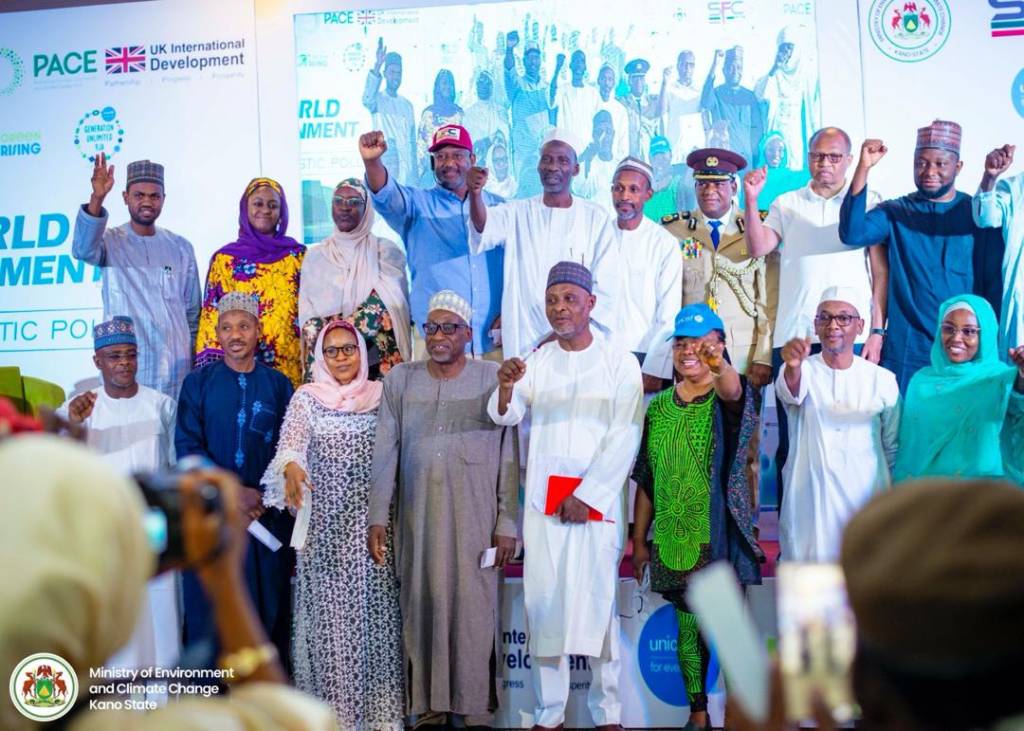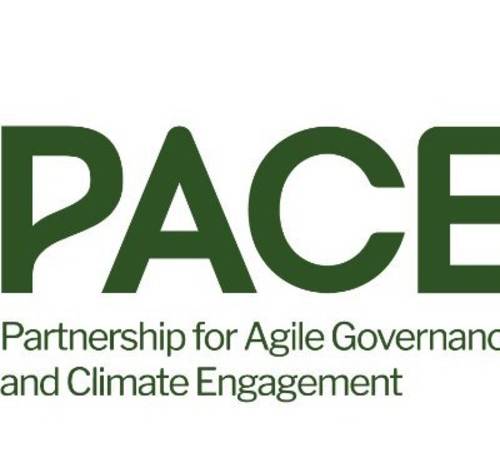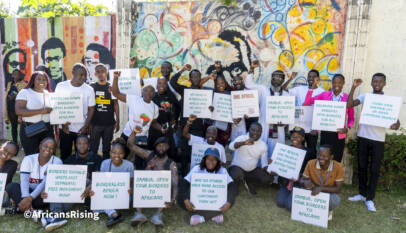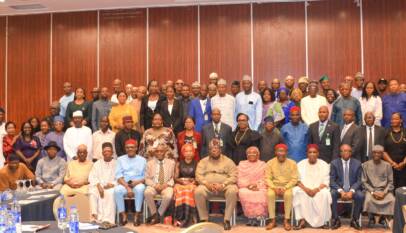PACE: Fostering Coalitions for Climate Responsive Governance in Nigeria
The UK Foreign, Commonwealth and Development Office (FCDO) Partnership for Agile Governance and Climate Engagement (PACE) program, which supports coalitions to influence government to resolve Nigeria’s climate and governance challenges, is building on over two decades of UK-FCDO governance reform interventions in Nigeria.

Partnership for Agile Governance & Climate Engagement (PACE) and United Nations Children’s Fund (UNICEF), amongst others.
Although the Nigerian government recognizes the devastating effects of climate change on the country’s socio-economic development, poor governance and weak stakeholder engagement inhibit climate resilience-building efforts in the country. And despite growing awareness among citizens and government stakeholders about the impacts of extreme weather events, effective collective action for managing these impacts and developing resilience remains elusive.
Against this backdrop, the Partnership for Agile Governance and Climate Engagement (PACE) builds on a rich legacy of two decades of UK-FCDO-funded governance reform interventions in Nigeria, drawing on the successes and lessons learned from previous initiatives such as Accountable, Responsive, and Capable Government (ARC) and State Partnership for Accountability, Responsiveness, and Capability (SPARC). PACE pursues stronger and more accountable institutions that work for everyone, especially the most vulnerable.
The 48-month PACE program seeks to achieve this by strengthening, scaling, and strategically supporting existing and emerging Issue-Based Coalitions (IBCs) working to influence government to resolve Nigeria’s climate and governance problems affecting the poorest and most vulnerable and hold them accountable for their climate change objectives. Subsequently, it aims to increase the income of targeted state governments from Internally Generated Revenue (IGR), mainstream climate action in state government policy, planning, and budgets, and strengthen election delivery and credibility.
PACE facilitates the creation of the IBCs to address the complex interrelated challenges of governance and climate change through effective governance and climate strategies, targeted and politically informed assistance to strengthen government systems, and support for citizen empowerment and accountability. This includes embedding, deepening, and broadening reform efforts in the northwestern states of Kaduna, Kano, and Jigawa in Nigeria, with targeted strategic engagement at the federal and regional levels.
The program seeks to simultaneously address Nigeria’s climate vulnerabilities and governance weaknesses by establishing communities of practice for Commissioners of Planning and Budget from all states and for senior women in civil or public service. Recognizing that climate change can exacerbate governance instability, PACE seeks to build resilience through “a Whole of Society” approach to coalition building and collaborative action, bringing together government, legislature, civil society, media, private sector, academia, and marginalized communities.
PACE adopts a three-tier approach to its geographic engagement with stakeholders, including Tier 1, i.e., Partner States (Kaduna, Kano, and Jigawa); Tier 2, i.e., Light-touch technical assistance delivered on a demand basis via a helpdesk model through national or regional platforms as well as Tier 3, which is focused on federal level political opportunities and issues where interventions support broader policy agendas or policy coordination that impacts the subnational.
Building on UK-FCDO’s Legacy of Facilitating Governance Reform
The Deputy National Team Leader of the PACE program, Ms Titilope Fakoya, describes PACE as a consolidation initiative for UK-FDCO governance interventions in Nigeria, one that taps into decades of governance reform interventions and adapts to new climate realities. She said previous governance programs like SPARC and ARC have laid a solid foundation for building governance systems, structures, and processes that have evolved and strengthened over time.
Ms Fakoya emphasized that PACE doesn’t merely replicate past efforts but enhances them, adapting to today’s reality of climate challenges and seeking to ensure these governance structures remain robust, even as new governments come and go. She assures that the PACE focal states have undergone extensive baseline studies to help understand their true state in terms of governance systems and consolidate on previous achievements through PACE.
“We want to see a stable Nigeria, a nation where governments can deliver on their promises to the people. That, in essence, is good governance. However, a major challenge we face is climate change, which threatens even the most stable governments. A single extreme weather event can destabilize everything. The key is building strong, resilient systems and governance processes in this era of rapid climate change,” she stressed.
Fakoya said the change in natural environment due to the influence of climate change brings about the necessity for good governance to ensure effective climate adaptation, noting that good governance means ensuring everyone including the men, women, youth, elders, and persons with disabilities all understand their rights and entitlements, and can demand accountable service delivery from the government.
“Our role is supporting governments to meet these demands by strengthening their systems. Governments need functional departments with clear job descriptions, succession plans, and strategic budgeting, not just arbitrary annual budgetary increases. We will help instill budget realism, aligning spending with actual revenue projections rather than habit. This approach fosters sustainable governance that serves all citizens effectively,” Ms Fakoya explained.
Climate Change: A Catalyst for Action
The PACE program’s uniqueness lies in its mission to integrate climate change considerations into the very fabric of governance, an approach that Ms Fakoya believes is both timely and essential. This is exemplified in the approximately eight months of extensive baseline research to understand the climate and governance landscapes in Kaduna, Kano, and Jigawa during PACE’s inception phase.
“We asked questions like: How do farmers see climate change? What are the conflicts caused by it? How do governments and civil society interpret these issues? This comprehensive approach laid the groundwork for practical interventions. By the time we began implementing, UK-FCDO was satisfied with the baseline processes. We had a clear plan, a robust monitoring and evaluation strategy, and most importantly, a readiness to tackle these challenges head-on.
Ms Fakoya says governments at various levels all need to understand how climate change is affecting people’s lives and livelihoods while the challenge before PACE as a program is to demonstrate that the program is improving Nigeria’s economic growth by exploring and addressing how climate change affects IGR, how it impacts the procurement process, and ultimately, livelihoods.
“That is why we are focusing on bringing everyone together, i.e., government, civil society, legislature, the media, and former civil servants, to prioritize issues and find solutions. It is all about coordination and empowering people to say: ‘We want a stable, resilient country, but climate change is affecting our work and the lives of our people. This inclusive approach ensures that even as climate issues threaten economic growth, we are prepared with governance mechanisms that can adapt and respond to climate challenges,” Ms Fakoya explained.
A Vision for a Resilient Future
As the PACE program moves from inception to implementation, UK-FCDO’s vision for the next four years is to build a more stable and resilient Nigeria that can withstand climate shocks thanks to efficient governance mechanisms. One profound way to ensure this is budget tagging and greening i.e, incorporating environmental and climate considerations into government budgeting processes, to achieve environmental and climate objectives through more informed decision-making.
Looking ahead, Ms Fakoya believes PACE’s efforts will leave a lasting impact not just in its three core states but across Nigeria’s six regions and 36 states. “We want to see a stable Nigeria, where institutions are strong, and where climate shocks don’t derail progress. By the 48th month of this program, we would like to see that, once again, we have contributed to building a more stable, more resilient Kaduna, Jigawa, Kano, and Nigeria.
“We want to see institutions that work, we want to see green budgets that reflect the real needs of the people, and governance processes that are inclusive and transparent. This is not only about climate change, it’s about people’s livelihoods, their rights, and their future. When we bring everyone in government, civil society, and communities to the table, we are not just responding to climate change, we are building a Nigeria that works for everyone,” she noted.
PACE’s ambitious vision, which is rooted in its Whole of Society approach, seeks to cultivate a new era of resilience and inclusive growth for Nigeria. By empowering all stakeholders to work collaboratively, the program promises to leave behind robust systems and enduring legacies of climate-responsive governance. As the PACE program’s Issue-Based Coalitions (IBCs) grow and wax stronger, there is a sense of optimism that Nigeria’s governance and climate landscape will be fundamentally transformed.
The IBCs are at the heart of PACE’s mission. They unite all segments of society through a ‘whole of society’ approach around a particular issue until its successful resolution. These coalitions will identify and address pressing problems like deforestation, flooding, and budget accountability and create sustainable structures and processes that outlast political transitions. As Nigeria grapples with climate shocks and governance pressures, PACE aims to foster long-lasting solutions that strengthen the country’s social contract with its people and build climate resilience.














